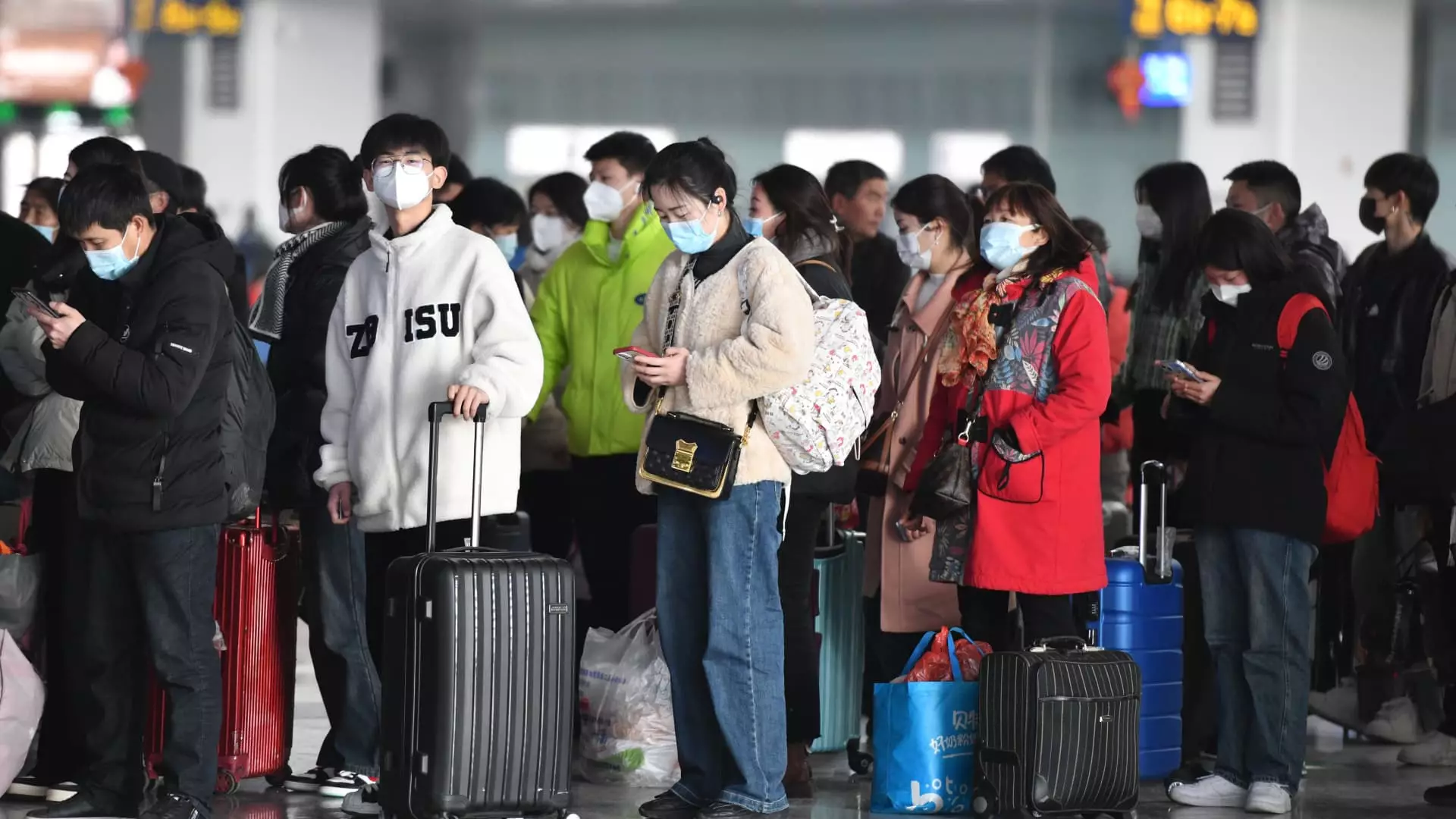Chinese travelers have recently been shifting towards taking more last-minute trips, indicating a change in consumer behavior due to economic uncertainty. According to Anthony Caputano, president and CEO of Marriott International, there is a growing concern over consumer confidence in China, as travelers are now booking hotels as late as three days in advance. This shift is significant, considering that the typical booking window for consumers in other parts of the world is around 20 days. Economists at Oxford Economics suggest that this change reflects modern travelers’ preference for spontaneity in their travel plans.
The shorter booking window poses challenges for businesses in predicting and preparing for demand, especially in the context of China’s slow economic recovery. Patrick Body at the Cheung Kong Graduate School of Business highlights that the increased uncertainty and caution with spending among consumers make it difficult for businesses to adapt. The impact of this trend is evident in the hospitality industry, with Marriott International revising its growth forecast for revenue per available room due to weak demand in China. Similarly, domestic travel booking agency Trip.com has experienced a decline in average rates for hotels and flights as a result of pricing pressure.
Frugality and Consumer Sentiment
The current economic environment in China, characterized by a protracted property crisis and high unemployment, has led Chinese consumers to become more frugal in their spending habits. From groceries to travel, people are more cautious with their money, reflecting the overall sentiment of low income and consumption levels. The ongoing pandemic has only exacerbated this trend, with the majority of hotel bookings on platforms like Trip.com made within three days of check-in. The uncertainty surrounding travel restrictions during the pandemic has further contributed to the rise in last-minute bookings.
Despite the challenges posed by economic uncertainty, there are signs of recovery in the travel industry. The Ministry of Culture and Tourism reported an increase in domestic trips and tourism spending during the Labor Day holiday, although the average spending per traveler remains below pre-pandemic levels. Looking ahead, Oxford Economics predicts a continued trend of short-haul trips to smaller cities or counties, which could benefit local economies. The upcoming Golden Week in October is expected to see a surge in travel demand, surpassing 2019 levels.
Outlook and Forecast
Trip.com CFO Xiaofan Wang expressed limited visibility for the second half of the year, attributing it to the short booking windows. As businesses navigate the challenges of predicting demand and pricing trends, there is hope for a rebound in booking activities post the National Day holiday. The industry remains cautiously optimistic about the recovery of the travel sector in China, despite the prevailing economic uncertainties.


Leave a Reply